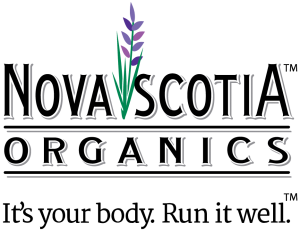
Organic Certification
What are you getting when you buy organic vitamins and supplements?

From Founder and President, Nancy Smithers

What it really means


“Made with organic ingredients” means the product contains at least 70% certified organic ingredients, according to COR/USDA standards. To qualify for this label, all organic components must be grown, harvested and processed following strict organic guidelines. The remaining ingredients, while not required to be organic, must meet specific COR/USDA criteria – they cannot be produced using prohibited methods and must be included on the National List of approved non-organic and non-agricultural substances.

Earning the “COR/JAS/USDA Certified Organic” designation is no easy feat. To display the respected COR/JAS/USDA Organic seal, products must contain at least 95% certified organic ingredients, meet rigorous organic standards, and clearly list the name of the approved organic certifying agency on the label. At Nova Organics, we’re proud to meet – and exceed – these standards. Every vitamin, mineral, supplement and snack food we offer is fully Certified Organic, reflecting our unwavering commitment to quality, transparency and your well-being.

“Made with whole food” may sound wholesome, but the reality can vary widely. This label simply means that a product contains some amount of actual plant or animal-based ingredients rather than entirely synthetic ones – but that amount could be as little as 5% or as much as 95%. And unless it’s also certified organic, those plant ingredients may have been grown with herbicides, pesticides, or even from genetically modified (GMO) seeds. Without full organic certification, “whole food” doesn’t guarantee purity or safety.

“Natural” might sound reassuring, but when it comes to vitamins and supplements, the term is largely unregulated and often misleading. The U.S. Department of Agriculture (USDA) only enforces standards for the word “natural” when it’s used on meat, poultry and egg products – where it means minimally processed and free from artificial ingredients. Outside of those categories, there are no official guidelines, allowing companies to use “natural” on labels even if the products contain synthetic or heavily processed ingredients.
WE’VE PUT YEARS OF CARE INTO SOURCING AND CRAFTING THE HIGHEST-QUALITY ORGANIC WHOLE FOOD PRODUCTS TO SUPPORT YOUR HEALTH AND WELLNESS – AND COR/USDA AGREES, CERTIFYING OUR COMMITMENT EVERY STEP OF THE WAY.
Learn More
We encourage you to visit the U.S. Department of Agriculture’s (USDA) informative website listing all of the certifications manufacturers in the organics business are required to obtain. They also explain commonly seen logos and claims made on labels and packaging.
“Organic is a labeling term that indicates the food or other agricultural product has been produced through approved methods that integrate biological, and mechanical practices that foster cycling of resources, promote ecological balance, and conserve biodiversity. Synthetic fertilizers, sewage sludge, irradiation, and genetic engineering may not be used.”


